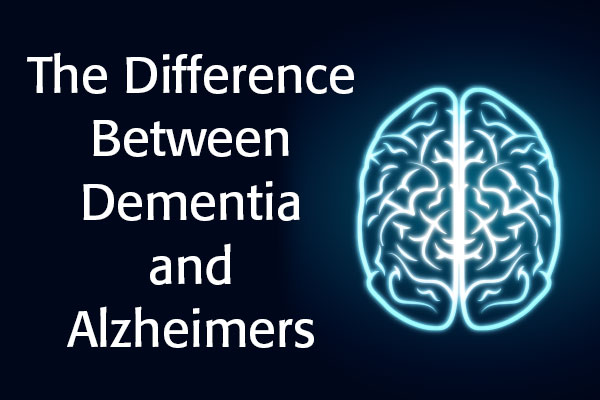
“Alzheimer’s caregivers ride the world’s biggest, fastest, scariest, emotional roller coaster every day.”
– Bob DeMarco
Every 3 seconds, someone in the world develops dementia. There are 50 million people living with it today, and that will almost double in 20 years.
But while it afflicts so many, most of us know very little about it. Dementia is often used interchangeably with Alzheimer’s. While the 2 are related, they’re also very different. Defining each will teach us more about both.
Dementia:
Dementia is an umbrella term for impaired memory and thinking. While the majority of cases are Alzheimer’s, there are other causes such as Parkinson’s, Huntington’s Disease, and Creutzfeldt-Jakob Disease. In other words, all Alzheimer’s is Dementia but not all Dementia is Alzheimer’s.
Dementia is not a diagnosis of a specific disease but instead is a term used to describe a set of symptoms.
The most commonly known symptom of Dementia is lapses in memory. It is important to note that some forgetfulness can be normal, for example not being able to remember specific details from an event that took place some time ago. Memory loss in dementia is more pronounced and impactful on daily life. For example not being able to recall details of a conversation that just occurred.
Other common and early symptoms of dementia include: having trouble keeping track of time and losing their way in familiar environments.
As the dementia progress, so do the symptoms.
- Forgetfulness becomes more serious
- It becomes hard to recall names and faces, beginning with acquaintances
- Personal hygiene becomes more difficult
- There’s often poor decision making
Alzheimer’s:
Alzheimer’s is the disease that causes the majority (50-70%) of dementia cases. Once a patient is diagnosed with dementia, doctors use detailed medical history, blood tests, brains scans, and /or mental evaluations to help to determine the cause.
Specialists are accurate 90% of the time. Symptoms of Alzheimer’s are:
- Memory loss that causes disruption in daily life
- Lack of problem solving ability
- Difficulty completing familiar tasks such as budgeting, getting lost etc.
- Apathy and social withdrawal
- Changes in visual understanding such as judging distance and deciphering differences in colour or contrast
- Depression
- Misplacing things and difficulty in being able to “retrace” their steps
- Poor Judgment
- Impaired speech
- Confusion
- Changes in mood or personality
- In later stages, difficulty speaking, walking, or swallowing
Is there a Cure?:
Most cases of dementia are not curable, however there are some medications that can help to improve symptoms in some individuals. Alzheimer’s is progressive and ultimately fatal. From the time of diagnosis, it can bring death in as little as 3 years for older patients. Younger patients often live much longer.
We don’t know what causes Alzheimer’s but we do know that you don’t have to be a senior to be diagnosed. While the majority of cases are in people over the age of 60, younger people can also develop it.
Even without a cure, doctors can use medication to manage symptoms to a certain degree. Science is moving quickly to develop drugs that improve both lifespan and quality of life for patients.
The effects of Alzheimer’s and other types of dementia have a large impact on the individuals that suffer from the conditions but also their families and friends. We hope that more public awareness of these conditions will help doctors around the world in their race to understand where this disease comes from and ultimately develop a cure.
Sources:
http://www.alz.org/what-is-dementia.asp
http://www.alz.org/alzheimers_disease_10_signs_of_alzheimers.asp
http://www.alz.org/what-is dementia.asp
http://www.alz.org/alzheimers_disease_what_is_alzheimers.asp
http://www.alz.org/alzheimers_disease_diagnosis.asp
http://www.alzheimer.ca/en/About-dementia/What-is-dementia/Normal-aging-vs-dementia